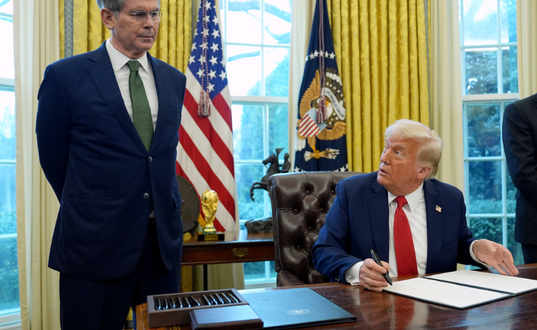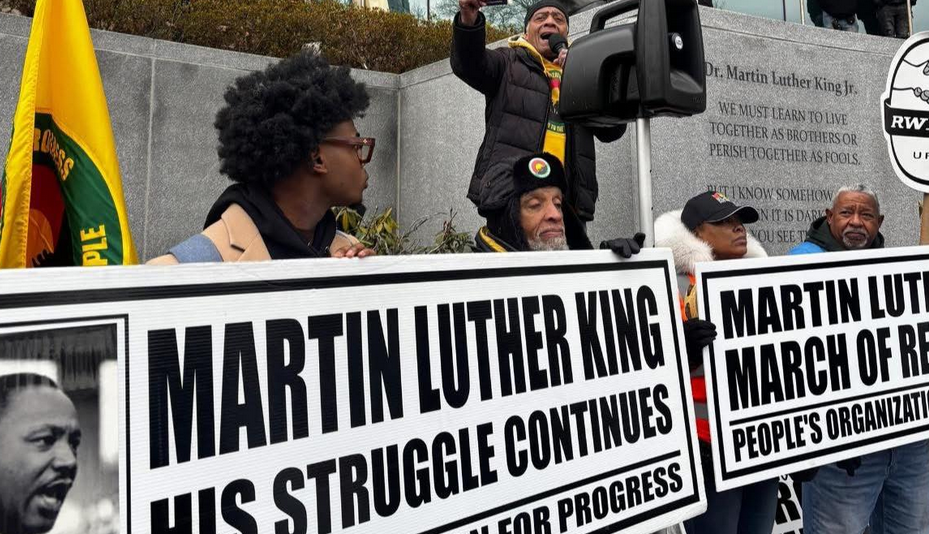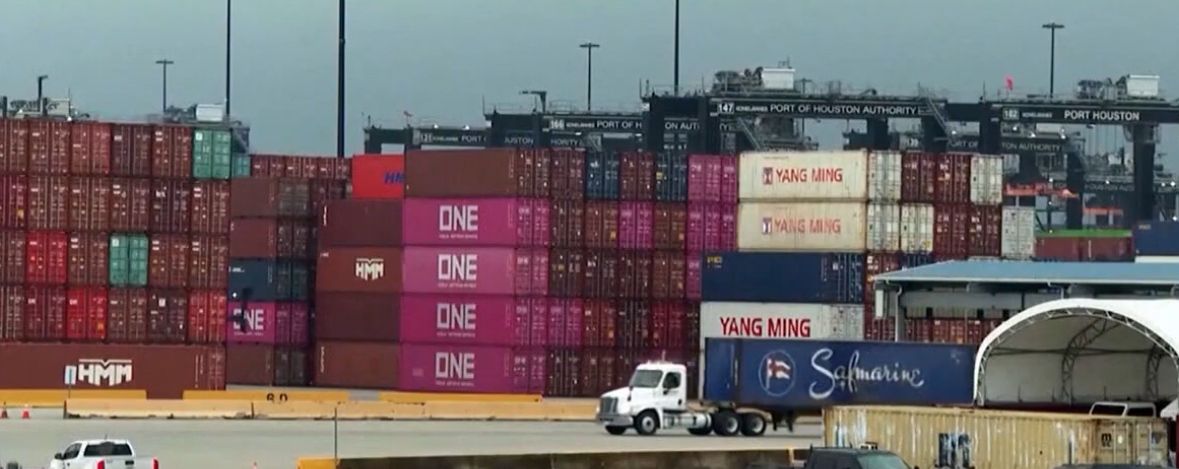Sessions. Photo: Gage Skidmore-Flickr
[Speaking Truth To Power]
The Trump Administration and the Jeff Sessions Justice Department have decided they will force federal prosecutors to target states that have decided to decriminalize marijuana.
If not opposed, this will have profoundly negative consequences, especially on Black America—which has suffered the most over the last 30 years during the so-called “War on Drugs.” It will potentially put more Blacks on a deadly collision course with police, and the prison industrial complex.
While more Whites proportionately use marijuana than Blacks the police and courts typically target African Americans. We must not allow Republicans to tell us they are the party of “small government” and “states’ rights” while they push prejudicial policing policies targeting progressive states and ethnic minorities.
It cannot be a coincidence that as Whites are dying in record numbers from the so-called “opioid crisis” Sessions wants to divert the focus and escalate his campaign to lock up Black people.
Sessions is also defending the pharmaceutical industry’s universe.
Thursday’s announcement, that federal prosecutors will be expected to pursue marijuana prosecutions, overturns a decision by the Obama Administration to deprioritize marijuana prosecutions in states where marijuana has been decriminalized. On Monday, California joined Colorado, Oregon, Nevada and Washington in allowing sales of marijuana for recreational use. 29 states and the District of Colombia have some form of decriminalization—including for medical uses.
In a previous memo, Attorney General Sessions told Justice Department officials: “It is the mission of the Department of Justice to enforce the laws of the United States, and the previous issuance of guidance undermines the rule of law.” He also talked about Congress’ determination that “marijuana is a dangerous drug and that marijuana activity is a serious crime.”
For some time now, Sessions’ made it clear he is against marijuana. In fact, Sessions once said, referring to the Ku Klux Klan, “I thought those guys were OK until I learned they smoked pot.” Sessions later claimed he was joking. What kind of person makes a “joke” like this?
Will Republicans back Sessions on this? According to a recent Washington Post analysis, of a Gallop Post survey, 51 percent of Republicans now support marijuana legalization. This is up nine points from the 42 percent of Republicans who supported legalization in 2016.
How will Republicans, who claim they are the party of “small government,” justify backing Sessions directive in using the federal government to go into states that have decriminalized marijuana? If Republicans don’t denounce this, it will expose their hypocrisy to their stated orthodoxy of being against “big government.”
There is another obvious contradiction here as well, since Republicans often talk about “states’ rights” issues, although they usually do so trying to defend some discriminatory action of a southern state. Sessions himself used the “states’ rights” argument to claim the Voting Rights Act was “intrusive” meddling by the federal government. What makes the Voting Rights bill “intrusive” but not Sessions’ decision to target states decriminalizing marijuana?
Republicans often talk with contempt against regulations and how they supposedly hurt business. But here a Republican administration is attempting to impose regulations against states they don’t agree with. This move will affect the booming business in marijuana—and, more importantly, will hurt those using marijuana for a variety of medicinal purposes, which include: Glaucoma, Dementia, Alzheimer’s, Parkinson’s, pain relief, and those suffering from the “wasting” syndrome related to AIDS.
Now some like to talk about the dangers of marijuana. Is marijuana any more dangerous than other things Americans use daily, like alcohol? Moreover, how can politicians pretend marijuana is a more serious public health hazard than the minimally tested pharmaceutical drugs flooding the market?
Death due to prescription drugs—including by overdosing on them—is the fourth leading cause of death in the world. Death due to prescription drugs, not automobile accidents, is now the leading cause of accidental death in America. Why isn’t Congress discussing this, and the big business pill-pushers who create these drugs?
Is it because most congressional politicians are indebted to these pharmaceutical drug-dealers, and all the corrupt corporate cash they spread around Capitol Hill—to the tune of $2.5 billion, over the last decade? Is this why all the lawsuits for wrongful death, and such, are ignored? Isn’t this why big pharma’s criminality is overlooked?
The inventory of deadly pharmaceutical drugs is too long to list here. However, here are reportedly several of the deadliest, most prescribed, pharmaceutical drugs: Adderall, Ambien, Ativan, Atromid, Cortisone, Methotrexate, OxyContin, Percocet, Prozac, Ritalin, Valium, Vicodin, Xanax, and Warfarin, to name a few. Can politicians name even one person who died of marijuana use?
It should be noted that the main problem with prescription drugs is: how they are approved with little study on their side effects. Currently, the diabetes drug Invokana has allegedly been linked to higher risk of amputations. Pharmaceutical companies can play Russian Roulette with the lives of the public and politicians remain silent because: the medicating of America is big business.
Even some Democrats are on the wrong side of this issue. Some Democrats maintain women have the right to “control their bodies” when speaking about abortion—but don’t see the contradiction when they say personal marijuana use should be criminalized. In the land of “individual liberty,” these Democrats are also bankrolled by big pharma.
We must also talk about drug abuse and misuse. Unfortunately, in the hysteria regarding drug use, what is often missed is: drug abuse, not use, is the real problem. In America, drug overdose is now the leading cause of death for those under 50.
What we’re often never told is: most people who use drugs—including “street drugs”—will never become addicted. Most of us have many people in our families who drink alcohol. How many become alcoholics?
Here is what notable African-American neuroscientist, Dr. Carl Hart, said about addiction on WBAI’s Democracy Now radio program: “One of the things that shocked me when I first started to understand what was going on, when I discovered that 80 to 90 percent of the people who actually use drugs like crack cocaine, heroin, methamphetamine, marijuana—80 to 90 percent of those people were not addicted. I thought, ‘Wait a second. I thought that once you use these drugs, everyone becomes addicted, and that’s why we had these problems.’ That was one thing that I found out. Another thing that I found out is that if you provide alternatives to people—jobs, other sort of alternatives—they don’t overindulge in drugs like this.”
Dr. Hart’s analysis points to why more White people are now dying due to the so-called “opioid crisis.” Many working-class Whites, now perceiving a drop in their standard of living, in desperation, are overmedicating themselves, literally, to death.
According to Mental Health America, some 16 million Americans face major depression every year, and that number is probably higher since many never seek treatment. While there are many drugs prescribed for depression, why doesn’t anyone want to talk about the causes of depression?
Indeed, many people who abuse “street drugs” are often fighting depression—and a sense of hopelessness in American society. Politicians now pretend to be so concerned about opioid abuse, among White people. But these same people had a “lock them up and throw away the key” stance during the racist War on Drugs that led to Blacks, now, accounting for half of America’s prison population—though we are a mere 12 percent of the nation’s population.
We ask this: why is Sessions really against marijuana? Is it because he is reportedly a paid propaganda politician for tobacco manufacturer R.J. Reynolds, makers of Camel cigarettes, who helped him get elected to the Senate in 1996? Tobacco manufacturers have long feared marijuana legalization would hurt their profits. The same can be said for pharmaceutical companies.
Sessions, and Trump, are also allegedly connected to the prison-industrial complex thru the billion-dollar companies CoreCivic and Geo Group—two of the nation’s largest private prison companies.
Since non-violent drug “crimes” are the leading cause of mass incarceration, keeping substances like marijuana illegal is profitable for Sessions, and Trump, and those stuffing their bank accounts. Since politicians are so upset about White people suffering by opioids, that means: more Black bodies will be imprisoned.
We must reject the Sessions-Trump plot on behalf of their pharmaceutical patrons.







